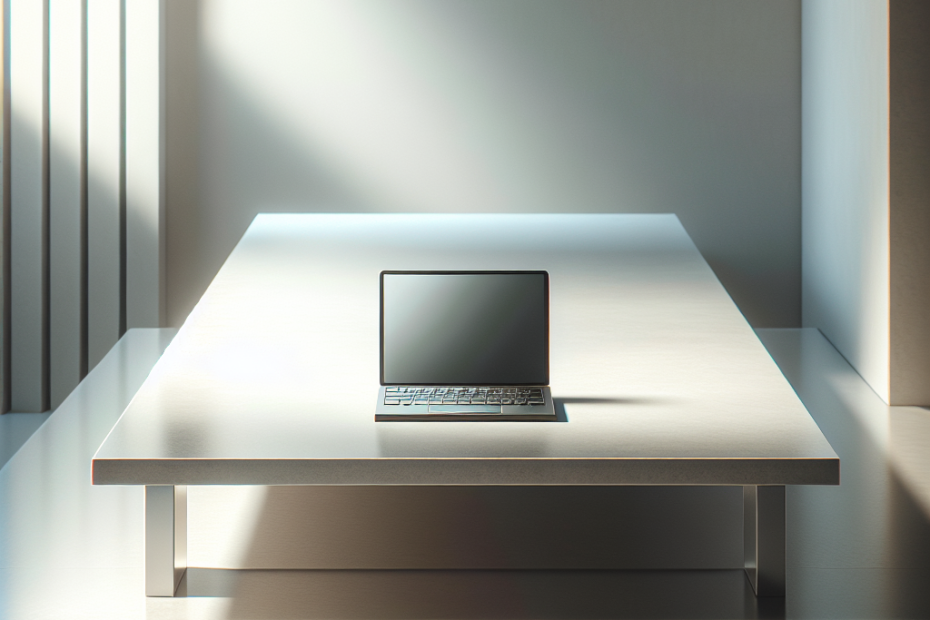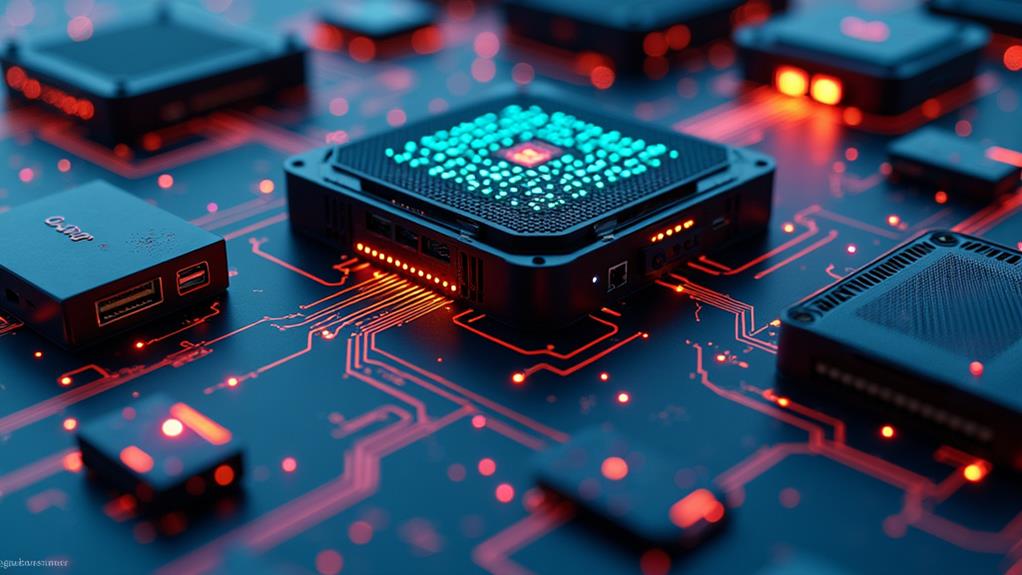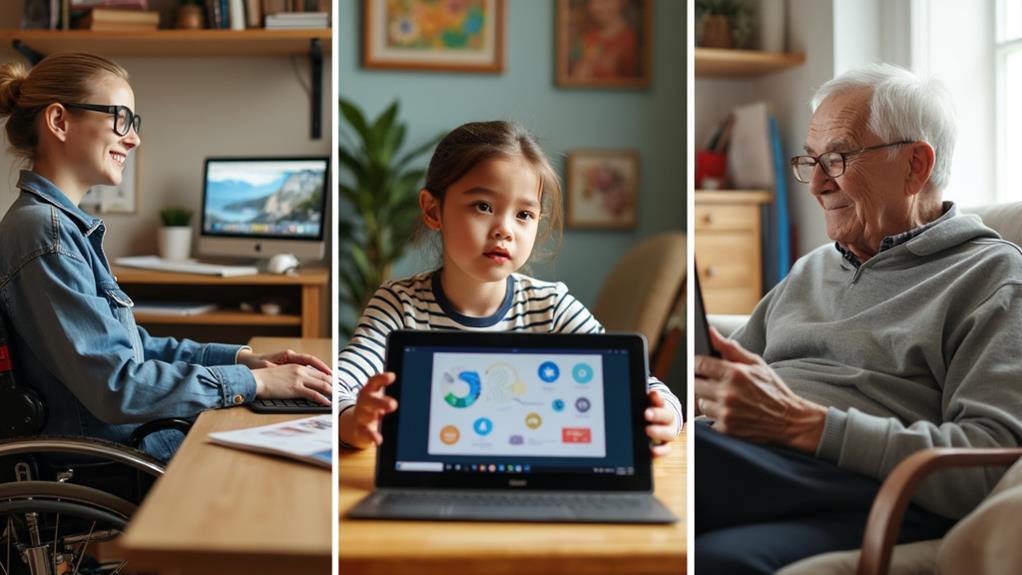



Are mini laptops worth it? In today’s fast-paced and ever-evolving world, staying connected and productive wherever you go has become a necessity. Mini laptops offer the perfect blend of portability and functionality, allowing you to carry your work, entertainment, and creativity wherever you go. With their compact size and lightweight design, mini laptops are incredibly convenient for those always on the move. But, are they really worth it? Let’s explore the pros and cons of mini laptops to help you make an informed decision.
Understanding Mini Laptops
Definition of Mini Laptops
Mini laptops, also known as netbooks or ultraportable laptops, are compact and lightweight portable computers that are designed to provide basic computing functionality with maximum portability. These devices are often smaller in size compared to traditional laptops, making them ideal for users who are constantly on the go or have limited space.
Key Features of Mini Laptops
Mini laptops are characterized by their small size and lightweight design. They typically have a screen size ranging from 10 to 12 inches and weigh less than 3 pounds. These devices are powered by low-power processors, such as Intel Atom or Celeron, which enable energy efficiency and longer battery life. They also come with a smaller keyboard and touchpad compared to traditional laptops.
Available Brands and Models
Several brands offer mini laptops in the market. Some popular brands include Acer, Asus, HP, Lenovo, and Dell. Each brand offers different models with varying specifications and features, giving consumers a wide range of options to choose from.
Advantages of Mini Laptops
Portability and Convenience
One of the significant advantages of mini laptops is their portability and convenience. With their lightweight design and compact size, they are perfect for individuals who are frequent travelers or constantly on the move. They easily fit into backpacks or handbags, allowing you to carry your work or entertainment wherever you go. Whether you need to work on assignments, watch movies, or browse the internet, mini laptops provide the convenience of mobility without compromising functionality.
Energy Efficiency
Mini laptops are designed to be energy-efficient, making them an excellent choice for users concerned about battery life. The low-power processors and optimized hardware ensure that the device consumes less power, resulting in a longer battery life compared to traditional laptops. This energy efficiency is especially useful when you are working remotely or when access to power outlets is limited.
Affordability
Another advantage of mini laptops is their affordability. Compared to traditional laptops, mini laptops are generally more budget-friendly, which makes them an attractive option for individuals who need a basic computing device without breaking the bank. They are a cost-effective solution for students, travelers, or casual users who require a device primarily for browsing the internet, word processing, or light multimedia tasks.
Drawbacks of Mini Laptops
Limited Processing Power
One of the main drawbacks of mini laptops is their limited processing power. Due to their small size and lightweight design, they are equipped with low-power processors that are not as powerful as those found in traditional laptops. This limitation can impact the performance of resource-intensive tasks such as video editing, gaming, or running complex software. If you require a device for heavy multitasking or demanding applications, a mini laptop may not be the ideal choice.
Small Storage Space
Mini laptops usually come with limited storage space, often relying on solid-state drives (SSDs) with lower capacities. This limited storage may pose a challenge if you need to store large files, such as high-resolution images, videos, or extensive software applications. However, cloud storage options and external storage devices can help mitigate this limitation to some extent.
Limited Scope for Upgrades
Another factor to consider is the limited scope for upgrades in mini laptops. Due to their compact design, most mini laptops have limited or no upgrade options for components such as RAM or storage. This means that you are generally stuck with the specifications and capabilities that come with the device. While this may not be a concern for users who do not require extensive customization, it is worth considering if you anticipate the need for future upgrades.
Comparison of Mini Laptops and Traditional Laptops
Performance Comparison
When it comes to performance, traditional laptops generally outperform mini laptops. Traditional laptops are equipped with more powerful processors, larger RAM capacities, and dedicated graphics cards, making them capable of handling resource-intensive tasks with ease. On the other hand, mini laptops are designed for basic computing tasks and may struggle when faced with demanding applications or multitasking scenarios.
Price Comparison
Mini laptops are known for their affordability compared to traditional laptops. Traditional laptops often come with higher price tags due to their more powerful hardware and larger form factors. Mini laptops offer an attractive option for budget-conscious individuals who need a portable and functional device without spending a fortune.
Longevity and Durability
Traditional laptops tend to have a longer lifespan and better durability compared to mini laptops. The smaller size and lightweight design of mini laptops can make them more prone to physical damage if not handled with care. Additionally, the components used in mini laptops, such as low-power processors, may become outdated more quickly compared to the latest hardware advancements found in traditional laptops.
Suitable Users of Mini Laptops
Students
Mini laptops are an excellent choice for students who require a portable and budget-friendly device for studying, note-taking, and completing assignments. They provide the necessary functionality for educational tasks, such as web browsing, document editing, and accessing online learning platforms. The lightweight design allows students to easily carry them between classes or study groups.
Travelers
For travelers, mini laptops are a convenient option as they can be easily packed and carried during trips. Whether you need to check your emails, plan your itinerary, or stay connected with friends and family, mini laptops offer a compact solution without adding excessive weight to your luggage. They also provide entertainment options during long flights or train rides, allowing you to watch movies, listen to music, or play games.
Casual Users
Casual users who primarily use their laptops for web browsing, social media, and light productivity tasks can benefit from mini laptops. These devices provide the essential functionality for everyday tasks while being portable and cost-effective. Whether you need to check your emails, stream videos, or work on word processing software, mini laptops offer a convenient and efficient solution.
Unsuitable Users of Mini Laptops
Gamers
Mini laptops are generally not suitable for gamers who require high performance and immersive gaming experiences. The limited processing power and lack of dedicated graphics cards make it challenging to run resource-intensive games smoothly. Gamers who prefer to play the latest AAA titles or competitive multiplayer games may find the performance of mini laptops inadequate.
Professional Designers
Design professionals, such as graphic designers, architects, or video editors, often require powerful hardware and specialized software to complete their tasks efficiently. Mini laptops may not have the necessary processing power or graphics capabilities to handle the demanding requirements of design software. Traditional laptops or desktop computers are better suited for professionals who rely on software applications that require substantial computing power.
Data Analysts
Data analysts and professionals who work extensively with large datasets and complex analytical tools may find mini laptops limiting in terms of processing power and storage space. Processing large datasets and running data analysis software can be resource-intensive tasks that require a more robust computing system. Traditional laptops or desktop computers with higher specifications are better suited for data-intensive work.
Decision Factors When Considering Mini Laptops
Personal Needs and Usage
Before deciding on a mini laptop, it is essential to consider your specific needs and usage patterns. Evaluate the primary tasks you will be using the laptop for and determine if a mini laptop can adequately handle those tasks. Consider factors such as the software applications you require, the level of multitasking you anticipate, and the storage space you need.
Budget
Budget is an important consideration for many users. Mini laptops are generally more affordable compared to traditional laptops, but it is still crucial to set a budget and find a device that meets your requirements within that budget. Consider the trade-offs in terms of performance, storage, and upgrade options when choosing a mini laptop that fits your budget.
Preference for Screen Size
Mini laptops typically come with smaller screen sizes compared to traditional laptops. While the compact size contributes to their portability, it may not be suitable for everyone. If you prefer larger screens for better readability or if you work with software applications that require more screen real estate, a traditional laptop with a larger display may be a better choice.
Overview of Best Mini Laptops in the Market
Best for Students
Acer Swift 1: This mini laptop offers a balance of affordability, performance, and portability. It comes with a 14-inch display, Intel Pentium processor, and 4GB of RAM, making it suitable for students’ everyday computing needs.
Best for Travel
Asus Chromebook Flip C302CA: This mini laptop stands out for its versatility and portability. It features a 12.5-inch touchscreen display, Intel Core m3 processor, and 4GB of RAM. Its 360-degree hinge allows users to use it as a tablet or a laptop, making it a great choice for travelers who need flexibility.
Best for Casual Use
HP Stream 11: This mini laptop is specifically designed for casual users who need a budget-friendly option for web browsing and light productivity tasks. It has an 11.6-inch display, Intel Celeron processor, and 4GB of RAM, providing sufficient performance for everyday use at an affordable price.
Future of Mini Laptops
Technological Advancements and Innovations
The future of mini laptops will likely witness technological advancements and innovations that further enhance their capabilities. With the continuous development of low-power processors, improvements in battery technology, and advancements in software optimization, mini laptops may be able to deliver better performance and longer battery life.
Changes in Consumer Demands
Consumer demands play a significant role in shaping the future of mini laptops. As more individuals prioritize portability and convenience, there may be a growing demand for mini laptops that offer better performance and storage options while maintaining their compact form factor. Manufacturers will likely aim to meet these demands by providing devices that strike a balance between power and portability.
Impact of Remote Work Culture on Mini Laptops
The rise of remote work culture has also influenced the demand for mini laptops. As more people work remotely, the need for lightweight and portable devices that enable productivity on the go has increased. Mini laptops provide a viable solution for individuals who need a compact workstation to carry around while working remotely or traveling.
Conclusion: Are Mini Laptops Worth It?
Mini laptops can be worth it depending on the circumstances and individual preferences. Let’s recap the circumstances where mini laptops are worth it and where they may not be the ideal choice.
Circumstances where Mini Laptops are Worth It
- If you prioritize portability and need a lightweight device for travel or frequent commuting.
- If you have a limited budget and require a basic computing device for everyday tasks such as web browsing, document editing, and light multimedia consumption.
- If you are a student who needs a portable device for studying and completing assignments.
Circumstances where Mini Laptops may not be Worth It
- If you require significant processing power for resource-intensive tasks such as gaming, video editing, or running complex software.
- If you need ample storage space for large files or extensive software applications.
- If you anticipate the need for future upgrades and customization options.
Ultimately, the decision to invest in a mini laptop boils down to personal consideration and finding the right balance between portability, performance, and affordability based on your specific needs and preferences.
Disclosure: As an Amazon Associate, I earn from qualifying purchases.






